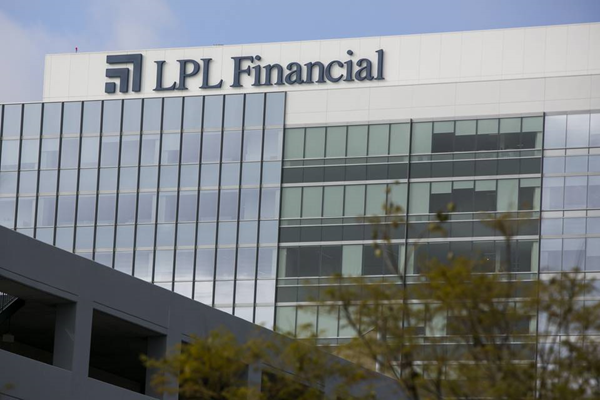|
THE
WALL STREET JOURNAL.
Markets |
Your Money
|
Wealth Adviser
Pension Accuses LPL Financial of Fraudulently Favoring Big
Shareholder
Fund alleges brokerage firm misled investors amid share buyback
that benefited private-equity firm TPG
|

The Charter Township of Clinton Police and Fire Retirement
System filed a lawsuit against LPL Financial Holdings Inc.,
saying it allegedly misled investors amid a $250 million share
buyback plan that mostly benefited one institutional investor.
PHOTO: KRIS TRIPPLAAR/SIPA USA/ASSOCIATED PRESS |
By
Michael Wursthorn
March 23, 2016 7:02 p.m. ET
LPL Financial Holdings
Inc. is being accused of fraudulently favoring one big shareholder
over others.
A Michigan pension fund
has filed a lawsuit seeking class-action status against the
Boston-based brokerage firm, saying it allegedly misled investors to
inflate its stock price amid a $250 million share buyback plan that
mostly benefited one institutional investor, according to the
complaint filed in the U.S. District Court in the Southern District of
California.
The Charter Township of
Clinton Police and Fire Retirement System, which bought 4,000 shares
of LPL earlier this year, says in the suit that LPL Chief Executive
Mark Casady and Chief Financial Officer Matthew Audette conducted a
“fraudulent scheme to allow” private-equity firm TPG to unload a lot
of its LPL shares at an “artificially inflated price.”
An LPL spokesman
declined to address any aspect of the suit, saying the company doesn’t
comment on pending litigation. TPG also declined to comment.
LPL said in November
that it would use $500 million from a debt refinancing to repurchase
shares. The buyback announcement came soon after activist investor
Marcato Capital Management disclosed it had taken a 6.3% stake in the
company to push for the exploration of “strategic alternatives.” Mr.
Casady, in a November interview, said he believed it was a “good time”
to buy back shares and “take advantage of weaknesses in the stock
price.”
A month later, on Dec.
8, Messrs. Casady and Audette spoke at a Goldman Sachs Group Inc.
conference and allegedly “made false and misleading statements”
regarding LPL’s financial fourth-quarter financial performance,
according to the complaint. Among the statements, LPL’s executives
described its earnings stream as “quite steady” and said it had been
executing its business plans well in the final months of 2015, the
complaint says. Besides that, executives said commission revenue would
be “more of the same,” compared with the third quarter, the complaint
adds.
LPL shares rose the day
of the conference, reaching $45.06 a share. Then, two days later, LPL
followed through on half of its buyback plan, spending $250 million.
Three-quarters of those funds were used to purchase 4.3 million shares
of LPL common stock from TPG at $43.27, giving the buyout firm a $187
million profit, the complaint says.
Two months later,
on Feb. 11, LPL disclosed fourth-quarter results that were below
analyst expectations, causing its shares to fall to $16.50 a day
later, erasing a third of their value in a single day. The company’s
fourth-quarter profit fell roughly 45% to $48.5 million from the
year-earlier period, while revenue dropped 8% to $1.02 billion.
Commission-based revenue, specifically sales of certain alternative
products, contributed significantly to the decline, LPL said then.
The pension fund says
TPG’s sale proceeds would have diminished by about $115 million if the
buyback had been initiated after LPL announced its earnings. The
retirement plan alleges the buyback was “a wasteful and inefficient
use of company capital” that hurt LPL’s other shareholders.
LPL still has to deploy
another $225 million toward buying back additional shares, it told
analysts in February. Mr. Audette said at the time that the company
would be “slow, steady and cautious” in deploying that remaining
capital.
The complaint seeks
class-action status on behalf of LPL investors who bought shares
between Dec. 8 and Feb. 11.
Write to
Michael Wursthorn at
Michael.Wursthorn@wsj.com
|
